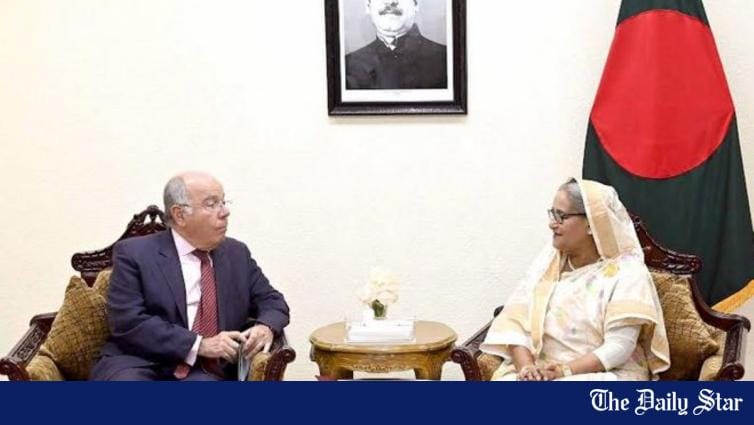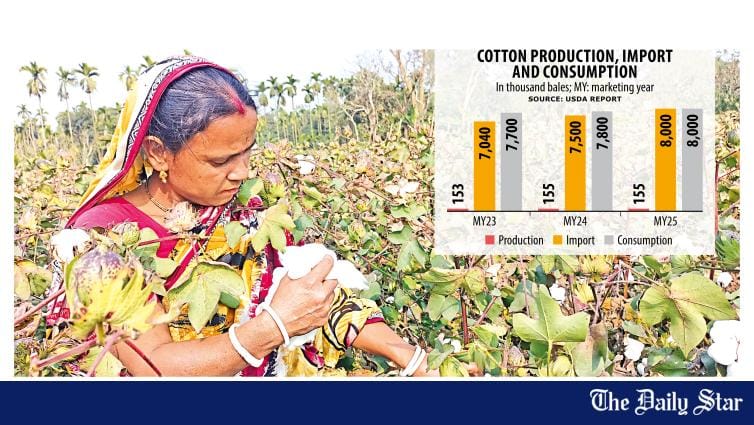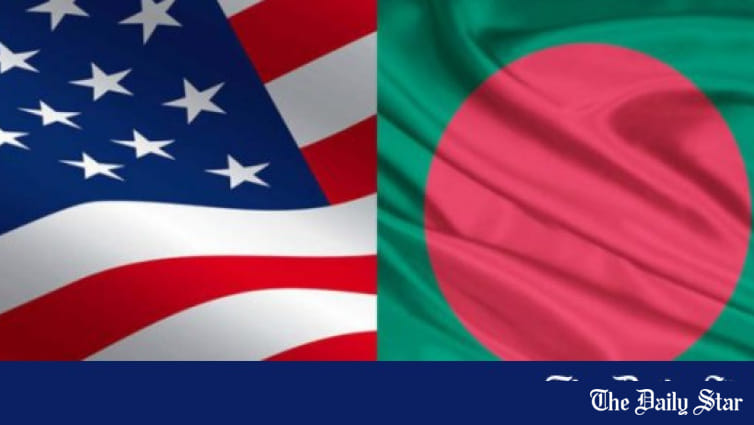RMG industry's transition to circular economy
ATIQUL KABIR TUHIN
Published :
Apr 17, 2024 22:01
Updated :
Apr 17, 2024 22:01
The ready-made garment (RMG) industry of Bangladesh has made considerable strides in increasing the number of green garment factories. So far with 213 factories certified by the U.S. Green Building Council (USGBC) in the Leadership in Energy and Environmental Design (LEED) category, Bangladesh can boast of being home to the highest number of green factories in the world. Moreover, five hundred more garment factories are also in the pipeline of receiving the LEED certification, which is a manifestation of the fact that an increasing number of apparel manufacturers are embracing environmentally sustainable and energy-efficient practices in their manufacturing process. Now the bustling and vibrant industry, with an annual export turnover of nearly $ 47 billion that is about 84 per cent of the country's total export earnings, is well positioned to take its sustainability practices up a notch by embracing circular transformation of the industry.
The RMG industry has so far been following a linear business model of "make, use and throw away" or "take, make and dispose". But the world is slowly but steadily transitioning from linear to circular production model. It is, however, heartening to see that stakeholders of the RMG industry started dabbling in circular economy model. In simple terms, the circular economy calls for eliminating maximum waste in the market by adopting a regenerative manufacturing system that treats waste as a source of new materials and new revenue. In this way, the requirement for virgin material can be reduced to a bare minimum or would not be needed at all.
In a circular system, products are designed and manufactured with such materials that they can be used, reused, repaired and recycled, thereby reducing waste and extending the lifecycle of materials incalculably. In this way, circular production method strives to ensure the majority of products or product materials do not end up as waste. It also embraces responsible sourcing of materials, reducing water and energy consumption and minimising waste at each and every stage.
Take the example of global sportswear giant Nike's formula of a circular economy for its products. It designs products in a way that they can be used, re-used, recycled, and composted at the end of their life. Nike says it is working to reduce its use of virgin materials and to increase its use of recycled materials.
The practice of circular economy is gaining ground worldwide because linear production system is not only negatively impacting the environment, but also leading to rapid depletion of finite natural resources. The European Union says by 2030 all textile products placed on the EU market must be made of recycled fibers, free of hazardous substances, and produced in respect of social and environmental rights.
Bangladesh is also experiencing environmental degradation of extreme measures. Textile and dyeing factories are one of the main culprits for polluting the rivers and canals and creating havoc to the environment.
Putting all of these issues together, embracing a circular economy is not just a choice, but a necessity for the RMG industry. If the circular economy model can be implemented in a substantive and meaningful way, it would be enormously beneficial for both the environment and business. It would also reduce the industry's pressure on natural sources. For all these reasons circular fashion can be a major thrust towards sustainable growth of the apparel industry.
However, when it comes to embracing circular business models, there is no 'one size fits all' solution. The procedure varies depending on the industry's context. As the second largest garment supplier in the world, Bangladesh's RMG industry has to deal with a huge volume of pre-consumer waste, not post-consumer waste. According to BGMEA, the apparel industry annually produces about 400,000 tonnes of pre-consumer textile waste. This waste is currently collected in an informal way, and only 5 per cent of it is recycled locally. The remaining waste is either incinerated in furnaces or dumped in landfills, which has a negative impact on the environment and human health.
To break free from the linear model of production, the RMG industry should prioritise upstream circularity, which refers to reducing waste at the source, during the design, production, and cutting processes. Technology can play a vital role here as innovations such as 3D printing and digital platforms for garment customization enhance efficiency and sustainability. These technologies enable a closer connection between manufacturers and buyers, fostering a sense of mutual responsibility for reducing pre-consumer waste to a bare minimum.
Upstream circularity will help reduce waste, but it will not eliminate waste. So the next stage should be to follow the principle of 'recycle and recover' through which textile waste (jhoot) can be turned into the fiber; and the fiber into fabric, and RMG products made from that recycled fabric. Recycling textile waste into new fabrics or products, also reduces the need for virgin resources. In this way not only is the pre-consumer textile waste eliminated, but also, according to an estimate, the industry can save as much as US$500 million a year.
To this end, a platform named Reverse Resources has been collaborating with manufacturers across Bangladesh as part of the Circular Fashion Partnership project since 2020. So far it has teamed up with about 170 manufacturers to segregate their waste and digitally trace it to recycling solutions. Clearly, this is the sort of solution BGMEA should bring into the mainstream if it wants to fulfil its Sustainability Vision 2030 where embracing circular economy is one of the key targets.
To build a circular ecosystem in the RMG industry, there is also a need for greater collaboration between all stakeholders, including brands, manufacturers, policymakers and waste management companies. Overall, there is a need for the development of a national circularity strategy, as well as fiscal incentives and other forms of support for factories that are investing in upstream circularity measures. The role of innovation is also of paramount importance for developing new circularity solutions for the textile industry. This includes developing new sustainable materials, designing for recyclability, and improving manufacturing efficiency. Factories that are willing to innovate and re-invent themselves by embracing this new business model will gain a competitive advantage over their peers because circularity matters for a sustainable future.












































